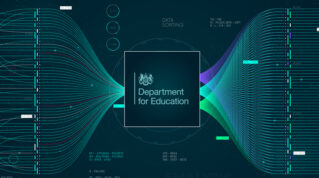Way back in 2008 (the Pleistocene era of today’s Internet 3.0), the Australian Labor Party began to deliver a policy it called the Digital Education Revolution (DER). Under up-and-coming then-education minister Julia Gillard, the DER had a budget of A$2.4 billion over seven years to accelerate digital adoption. It did just that, but its model went on to almost bankrupt Australian state education systems, leaving them on the hook for supporting and replacing the nearly one million devices given to students and schools (at an estimated cost of A$3 billion).
Fast-forward to the Covid crisis, and a similar revolution in our schools threatens to replicate Australia’s debacle here. In 2020-21, the government provided 1.3 million mostly low-cost laptops for students, with another 600,000 due for delivery in 2022. But at almost twice Australia’s DER, it’s unclear whether policymakers, lobbyists and think tanks like the Education Endowment Foundation who pushed for it had really thought it through.
Few education laptops last as long as five years, and the cost of maintaining them and keeping their software legal and safe can run into multiples of the actual device cost. Then there’s the cost of keeping this number of devices available after the recovery programme (say, from 2023). With England’s education budget shrinking by around nine per cent and inflation running at as much as ten per cent, school budgets won’t be able to fund replacement devices, software, services or security.
Few if any schools are even thinking about this
As just one example, albeit a massive one, Windows 11 requires a processor many Windows 10 machines don’t have, and especially those of the more affordable kind (which represent the majority of devices found in schools, according to the DfE’s own data). Microsoft says it will “continue to support at least one version of Windows 10” until mid-October 2025, but hasn’t said which one.
In short, simply providing as many (let alone more) Windows-based devices is a financial tsunami waiting to happen. Yet few, if any, schools are even thinking about this. It’s on the radar of the larger MATs, but they are all hoping that the government and the DfE will shake the ‘Treasury Tree’ when the need arises. A nice idea but, with high inflation and a Teachers’ Pensions scheme that was unfunded to the tune of £481 billion last year and is due to be revalued in 2024-5, an unlikely outcome.
Schools are already holding back on buying new devices – or rethinking their strategies altogether. One school I know of is looking to reduce its bill from £300,000 to £25,000 in 2023-24 by converting all their machines to a system like Chrome, where most of the operating system is in the cloud and much less dependent on machine specifications.
But even this more financially sustainable way of doing things comes with costs, at least initially, as teachers and pupils will need time and training, and in some instances software will need to be replaced. This means school leadership teams need to invest time and effort in considering their options in what is a competitive market.
In short, though schools may feel they have just successfully navigated an edtech revolution, another is already drawing nearer. It will start to happen as soon as 2024, whether taxpayers, policymakers, school leaders or teachers welcome it or not.
There is of course some hope that cloud-based computing will present a final leap in the evolution of edtech, leaving only device wastage and software investment as ongoing costs of doing business in the world of digital education. But even that is far from negligible, and some way off for most schools.
Politics may be about which way the sheep are jumping today, but system leaders must start thinking more long-term about these challenges. Unfortunately, with its secretariat and therefore its agenda set by BESA, the all party parliamentary group for ed tech is unlikely to be the vehicle for that. But unless someone does soon, it’s likely to be too late to protect schools and taxpayers from the next, inevitable edtech revolution.
Correction: This article was amended to state BESA is the secretariat of the all party parliamentary group for ed tech, not the education select committee.















Your thoughts